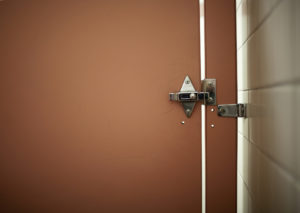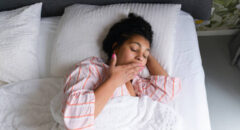 Peeing too much? While, there’s no one-size-fits-all recommendation for how often or how much someone should pee, according to Cleveland Clinic, you may be wondering whether you suffer from an overactive bladder. The condition, which affects an estimated 33 million Americans, represents a collection of symptoms that can take you away from your normal routine, including:
Peeing too much? While, there’s no one-size-fits-all recommendation for how often or how much someone should pee, according to Cleveland Clinic, you may be wondering whether you suffer from an overactive bladder. The condition, which affects an estimated 33 million Americans, represents a collection of symptoms that can take you away from your normal routine, including:
Urgency: failure to postpone the need to urinate.
Frequency: the need to urinate at least eight times per day.
Urge incontinence: “spastic bladder,” or leakage when one needs to urinate.
Nocturia: excessive urination at night, at least two times per night.
Believe it or not, your bladder can hold up to 2 cups or 16 ounces of urine for two to five hours, without much any trouble. So, if you believe you’re running for the bathroom too frequently, here are 5 reasons you may be peeing too much and what you can do.
READ: What Does Your Urine Color Really Mean for Your Health?
5. Weak pelvic muscles:
Muscles that have become stretched and weakened due to pregnancy and childbirth, can also cause leakage.
What you can do: Pelvic floor exercises like Kegels. First, you must learn how-to flex your pelvic floor muscles. Then, squeeze for 5 seconds and relax for 5 seconds. Complete 3 sets of 15 repetitions.
4. Diabetes:
Frequent urination (also called polyuria) and excessive thirst (also called polydipsia) are often early and commonly overlooked signs of diabetes. According to the Mayo Clinic, your kidneys must work harder to filter and absorb the excess sugar (glucose) that builds up in your blood when you have diabetes. This can trigger frequent urination, which in turn can make you dehydrated.
What you can do: If you suffer from frequent urination and/or excessive thirst and have not been diagnosed with diabetes, you should talk to your doctor about








